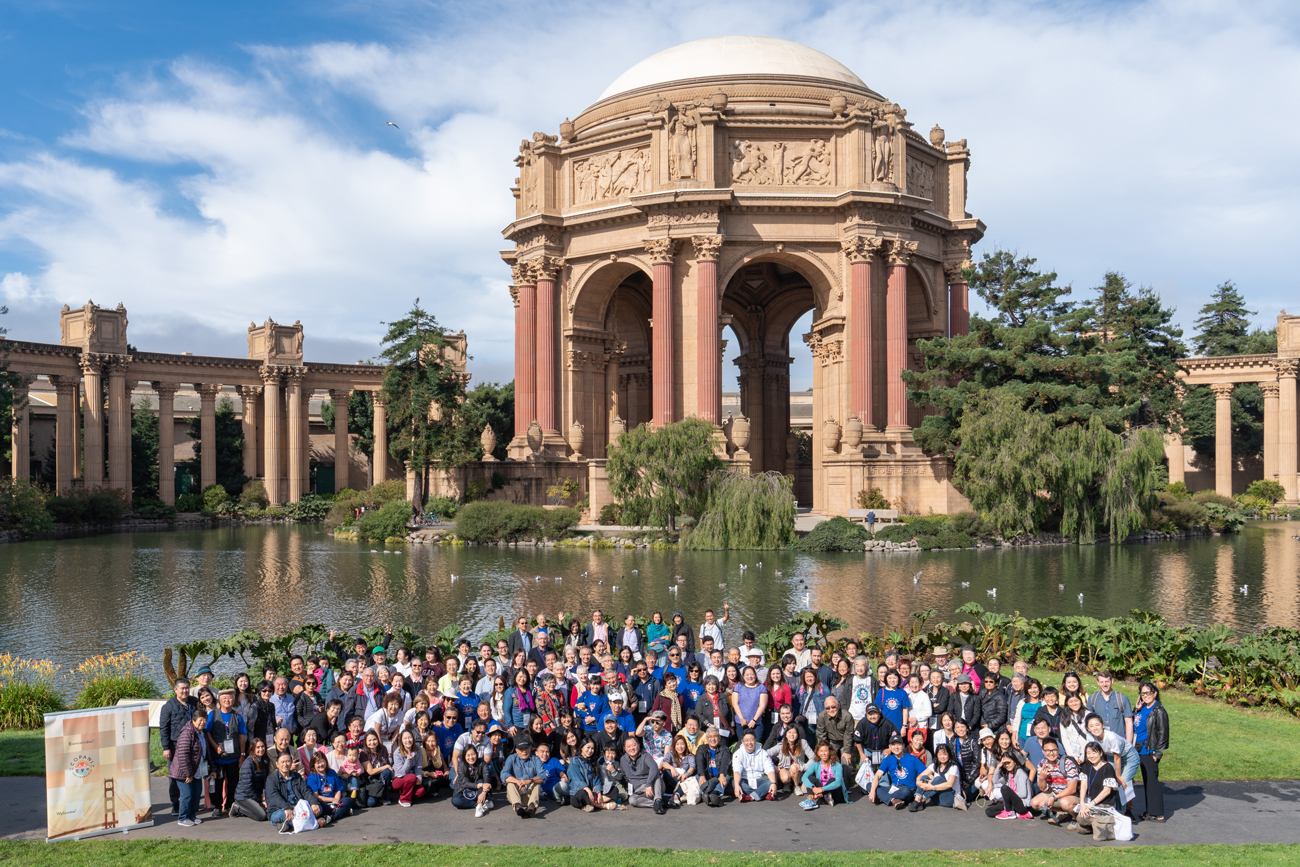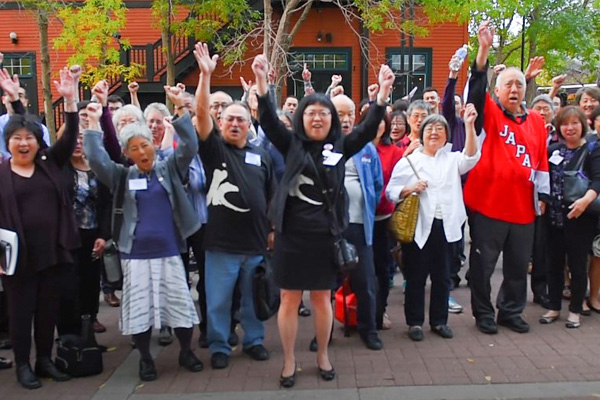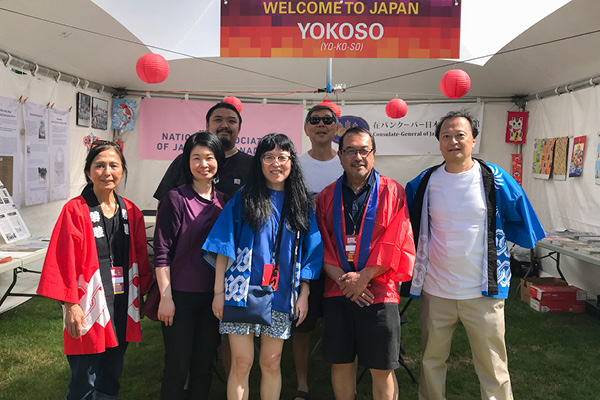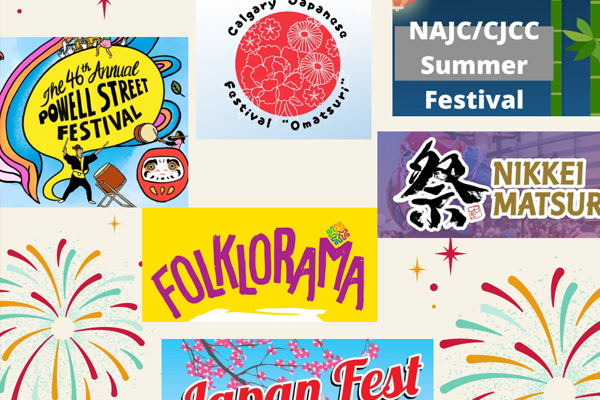by Lorene Oikawa
Travel is a great form of education especially when you attend a COPANI convention with 250 participants from Hawaii, Mainland US, Mexico, Dominican Republic, Chile, Colombia, Brazil, Paraguay, Argentina, Peru, Germany, France, Japan, and including 40 from Canada. COPANI is an international convention bringing together Japanese descendants from primarily North and South America. NAJC attended COPANI XX last month in San Francisco. It’s been 18 years since a COPANI was held in the United States. In 2021 it will be in Paraguay.
COPANI XX was an opportunity to connect with Nikkei from other countries, learn about each other’s histories and current work, and also hear many great speakers. We were inspired by keynote speaker Norman Y. Mineta, a Japanese American who served as the Secretary of Commerce under President Bill Clinton and as the Secretary of Transportation under President George W. Bush. He urged us to own two things that no one else owns: our name and our integrity, and to protect both. He encouraged us to be at the table where decisions are being made and to get involved with the development of public policy.

More powerful stories were shared at workshop sessions which took place during the second day of the convention. Delegates split up into four concurrent sessions covering business, Nikkei youth and young adults identity and networking, family and community, and civil rights and social justice. I was one of the presenters for the civil rights and social justice session so I wasn’t able to see the other workshops. In the morning at the Civil Rights & Social Justice session, Maryka Omatsu spoke about Japanese Canadian history and BC Redress. David Inoue, Executive Director of the Japanese American Citizens League, a national Japanese American organization, shared the history of the Japanese American internment. He showed the images that the government did not want the public to see. The US government hired a photographer to show “happy” photos of incarcerated Japanese Americans which did not include barbed wire and the real conditions. Karen Korematsu shared her father’s case that went to the Supreme Court to challenge the violation of his rights as an American citizen. Grace Shimizu shared the little known stories of Japanese Latin Americans who were forcibly removed and placed in Japanese American internment camps.
All speakers shared the importance of knowing our history and the relevance to what is happening today. It was moving and a reminder that we need to speak up and stand up to what is wrong, now more than ever.
In the afternoon, NAJC got into some deep discussions about our work on anti-racism and solidarity with other groups. NAJC VP Keiko Miki spoke about our work with Indigenous peoples, GVJCCA President Judy Hanazawa spoke about poverty and homelessness, and I addressed Islamophobia. We appreciated co-presenter Satsuki Ina who has been a great resource for Japanese Canadians. She spoke about the Japanese American campaign, Tsuru for Solidarity, she started with some other JA leaders. It’s a peaceful protest against the ongoing mass detentions in the US. They fold Japanese origami paper cranes, a symbol for transformation, healing and nonviolence, and place the cranes on the fences at the detention centres. She showed a video where they took the cranes to Fort Sill to stand up against the incarceration of 1,400 children forcibly separated from their families. Fort Sill is a former Indigneous boarding school, a Japanese American prison camp during the Second World War, and a place where war resistors were held. We folded some cranes for them while at COPANI. More information.
Other Canadian presenters at COPANI XX included Art Miki who spoke about Japanese Canadian Redress,NAJC Chair JC Young Leaders Alex Miki who co-moderated the session for youth/young adults and spoke on a young adult panel, and Ken Teramura who presented at a business session.
The Canadian delegation enjoyed their time, learning the stories of Nikkei in other countries, sharing their own stories, connecting with other Nikkei and developing friendships and opportunities for collaborations. We have more in common than the differences in language and geography. We are looking forward to continue the conversations and connections.
The NAJC members who attended COPANI are completing a NAJC survey to share highlights of the sessions they attended and any valuable resource and best practises information. Also, their feedback will be important, because NAJC has been asked and will be considering hosting a COPANI convention in the future.
Thank you to COPANI XX president Roji Oyama and his organizing committee for a successful COPANI 2019 convention in San Francisco. We were also fortunate to have a bit of time for a quick city tour and to visit the vibrant Japantown with very visible signs of the community including a plaza, historical markers, street signs,and banners, restaurants and shops. Apparently, it’s only one of three left in the US.
BC Redress community consultations have wrapped up and the findings were presented at a members’ meeting on September 28. The final paper will be released to the government and the public on October 16. A tremendous amount of work was completed in a short time frame by the BC Redress steering committee to fulfill their mandate. We appreciate their work and offer our thanks to co-chairs Maryka Omatsu and Art Miki, and the rest of the committee, Judy Hanazawa, Lynn Deutscher Kobayashi, Eiko Eby, Les Kojima, and Kevin Okabe who provided substantial support to the committee. Thanks also to the member organizations who assisted with hosting of in-person community consultations, our advisors, and everyone who participated. The NAJC is working on next steps with the priority to complete the paper, set up a strategy team, and there will be more to report next month.
With the increase in hate and racist acts, our collective work on human rights and anti-racism is even more important. Check out the Canadian Race Relations Foundation’s 2018-2019 Annual Report. The federal government has developed an anti-racism strategy. Unfortunately, the NAJC was not included in the consultations and we have some important input so we have contacted the federal government to see how we can work with them on anti-racism and human rights. The NAJC also made statements on two high profile cases involving blackface and misappropriation of a photo of Japanese Canadian internment. You can check out the statements at najc.ca
Wishing you safe travels as the weather changes, and please take a moment on November 11 to remember our Japanese Canadian veterans who fought for Canada in the First and Second World Wars to present.



